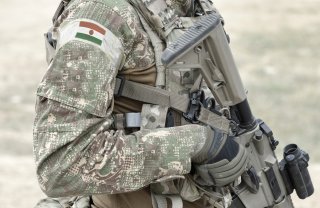Moving Beyond the Impasse in Niger
A willingness to bear the burden of some difficult decisions while considering the long-term regional interests—as well as America’s own strategic interests—will be needed in the coming days and weeks.
• While the loss of the principle of never condoning unconstitutional changes of government would be a major setback for Africa, as well as a deep injustice to President Bazoum who won the support of 55 percent of Nigeriens in the February 2021 runoff, it has to be admitted that the junta will not be easily displaced in the short term. Constructive ways must be found to engage with it as the de facto authority in Niger, a country twice the size of France in the middle of the strategic crossroads between North Africa and Sub-Saharan Africa.
• President Bazoum and other senior officials who have been detained since the putsch must be freed and their safety as well as that of their families assured. There is really no way forward without satisfying this basic condition.
• The Wagner Group—or any other similar proxy for malign external actors—must not be allowed to infiltrate Niger beyond what they have already done with disinformation campaigns. The junta will have to retract its bombastic invitation and undertake to not allow the criminal network into the country.
• The United States and other international partners still welcome in Niger—alas for France, resentment against the former colonial power is such that it is unlikely that the five defense and security cooperation agreements scrapped by the junta can be salvaged—should try to find practical modalities to do so. The two U.S. airbases in Niamey and Agadez have significant strategic value on a number of different levels and the positive influence that the American military presence in the country has had in terms of improved national and regional security should not be lost. If the Biden administration has been seeking a way to engage with the Burkinabè junta to advance security and keep Wagner at bay, all the more reason to approach Niger in the same spirit. (Tellingly, while the French embassy in Niamey was attacked by pro-coup mobs waving Nigerien and Russian flags, the new sprawling new U.S. embassy has seen nothing of the sort.)
• The transition back to constitutional order should not be a prolonged process. Under far more difficult security conditions, Niger managed to hold reasonably good elections at the end of 2020 and the beginning of 2021 in which more than 70 percent of registered voters participated. There is no reason that, especially now that security has improved, polls cannot be organized within a matter of months.
Secretary of State Anthony Blinken is correct in his comments to a reporter earlier this week: “What we are seeing in Niger is extremely troubling and provides nothing to the country and its people. On the contrary, the interruption of this constitutional order puts us, and many other countries, in a position where we have to stop our aid, our support, and this will not benefit the people of Niger.” But, with ECOWAS convening yet another extraordinary summit on August 10 in Abuja, neither is there any advantage in the bellicose—and, frankly, not credible—talk of ultimatums, deadlines, and military intervention.
What is needed is a small measure of what America’s 61st Secretary of State, James A. Baker III, described in his 2007 Kissinger Lecture as “pragmatic idealism” which, “while firmly grounded in values…appreciates the complexity of the real world—a world of hard choices and painful trade-offs. This is the real world in which we must live, decide, and act.” Such a willingness to bear the burden of some difficult decisions while considering the long-term interests of Niger, its people, and the broader Sahel region—as well as America’s own strategic interest—will be needed in the coming days and weeks, especially if Washington’s offer of good offices is taken up.
Ambassador J. Peter Pham, a Distinguished Fellow at the Atlantic Council and a Senior Advisor at the Krach Institute for Tech Diplomacy, is former U.S. Special Envoy for the Sahel and Great Lakes Regions of Africa.
Image: Shutterstock.

